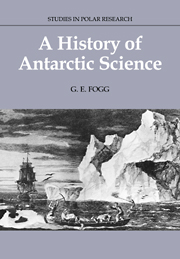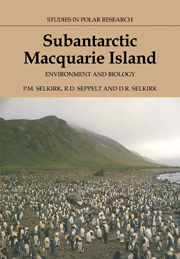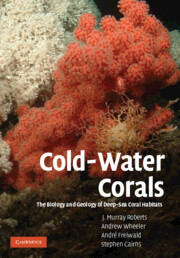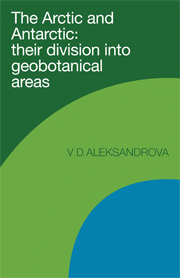A History of Antarctic Science
This book is the first to describe the development of scientific activity in the Antarctic (as distinct from exploration) in all its aspects. Coverage spans three centuries, starting with Halley who laid the foundations of geophysics which was to be the principal driving force behind Antarctic science for most of its history. Although early researchers built up a picture of the main features of the Antarctic environment, the idea of science specific to the continent emerged only later. As the main disciplines of oceanography, earth sciences, the sciences of atmosphere and geospace, terrestrial biology, medicine, and conservation developed, the clear interactions between them within an Antarctic context led to the emergence of the holistic view of Antarctic science which we hold today. For anyone with an interest in the history, conservation or politics of this special part of the world, or in the history of the development of science, this book will provide a mine of information and will act as a rich source of reference for many years to come.
- Introduced by Margaret Thatcher
- Essential reference for professionals
- This book is the first to describe the development of scientific activity in the Antarctic (as distinct from exploration) in all its aspects
Reviews & endorsements
'Among the achievements of Antarctic science are the discovery of the ozone hole and the invention of the string vest. This wonderful book deals with both along with most of the other fruits of scientific endeavour.' New Scientist
'The book's great achievement is to sum up concisely and readably the present state of Antarctic science.' New Scientist
'Fogg's book is a splendid resource for the polar scientist, historian, and political scientist. I can envision it too in the collection of many Antarctic research stations, where it deserves to become dog-eared with use.' Eric L. Mills, Science
'Fogg's work is a significant and welcome addition not only to Antarctic literature but to the history of science and technology. Its greatest contribution is making a syustematic and readable account out of hundreds of yeards of historical and scientific sources. It should become a standard background text for specialists from a broad range of scientific disciplines, a model work for historians of science, and a coherent guide for those interested int he complex history of the Antarctic.' The Times Higher
' … the book is fascinating, and an insight for those not familiar with Antarctic operations or the history of the region. It is also a useful addition for the scientist who wants a perspective of Antarctic research in fields other than their own.' Book Reviews Emma Grove
Product details
June 2005Paperback
9780521673372
508 pages
244 × 170 × 26 mm
0.8kg
120 b/w illus.
Available
Table of Contents
- Foreword
- Preface
- 1. Introduction
- 2. The science of the early explorations
- 3. The national expeditions of 1828 to 1845
- 4. Averted interest and consolidation
- 5. The modern period - logistics and material
- 6. The modern period - the involvement with politics
- 7. The sciences of the Antarctic seas
- 8. The earth sciences
- 9. The sciences of atmosphere and geospace
- 10. Land-based biology
- 11. Man and the Antarctic environment
- 12. Some concluding comments
- References
- Index.










